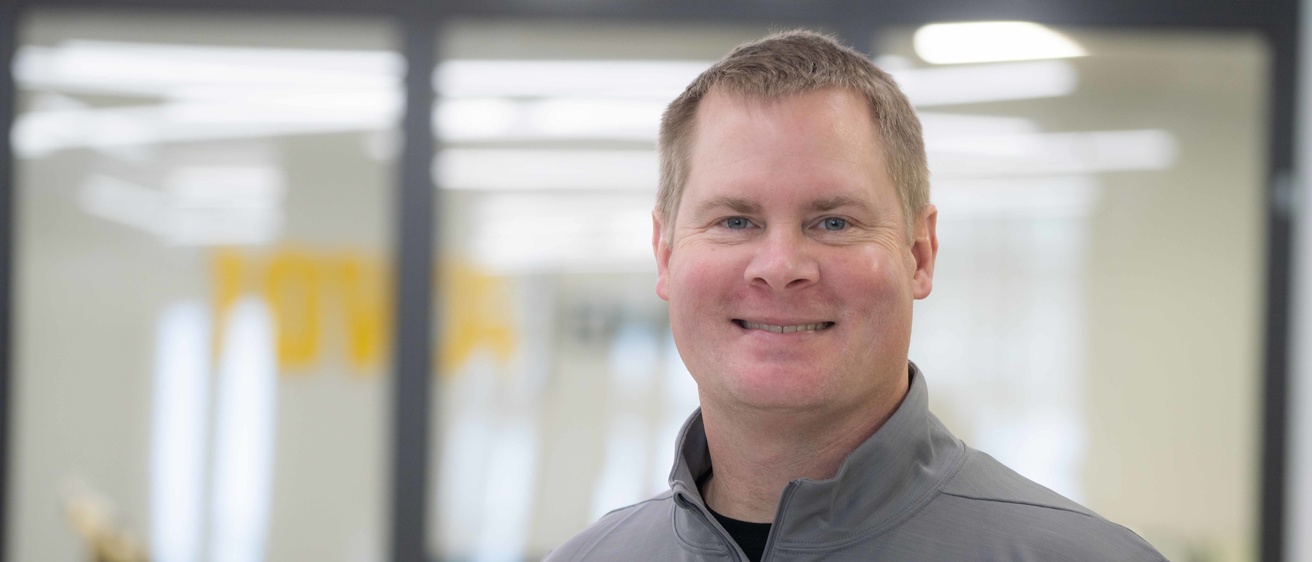When Tom Hicks received a set of juggling balls from his grandmother 20 years ago, little did he know that it would become a crucial teaching tool in his career.
With almost two years under his belt as the College of Education's Student Support Coordinator, Tom Hicks incorporates tools from various roles at smaller colleges to aide University of Iowa students’ success in school when outside factors are affecting their work.
But one of his favorite teaching tools is the set of juggling balls.
With the knowledge that students have a lot more going on in their lives than what is on their academic agendas, Hicks uses the juggling balls to build an understanding that it is okay to fail if you continue to pick yourself back up.
Juggling is used as a representation of a student’s life. As a student learns to focus on one item that may seem difficult, they build confidence and can compartmentalize what is being thrown at them.
“There’s value in focusing on one task at a time, and there’s value in adding tasks in steps. You can’t juggle two or three balls before you know how to juggle one. It takes time,” Hicks explains. “It isn’t something that you can just pick up in a couple of minutes. You have to invest in yourself, and yes, you’re going to drop these balls, but let’s celebrate the failures. It builds a growth mindset.”
Hicks’ position was created as the college saw a need for a role outside of an academic advisor to assist students who experience noticeable decline in their work due to various outside challenges.
To mitigate this trend before a more serious issue arises, the student and Hicks work together to “develop and improve skills, usually academically, but sometimes it’s life skills – time management, task management, studying, reading and writing,” Hicks says.
“The second piece is, I often help students identify, reduce, and eliminate any obstacles that might be in their way. Sometimes, it's something that may seem relatively small but feels huge to them. The third piece is providing a space where they can feel like they've got a little bit more control over what they are experiencing.”
While each individual student may need a different approach to achieve their goals, one tool Hicks often brings to his meetings is juggling balls.
Though Hicks’ role is especially focused on students who have experienced a drop in their grades, all undergraduate students in the College of Education can benefit from the skills Hicks shares to support their success and optimize their academic journeys.
This includes working with students in the Teacher Education Program and Education Studies and Human Relations majors as well as any future new undergraduate majors developed in the College of Education.
Hicks taught students juggling as a tool for growth in one of the four student success workshops he provided last semester. The three additional workshops highlighted skills in time management, studying strategies, and resiliency.
Hicks says he also often helps students connect to campus resources that will help them succeed, including everything from Academic Advising and University Counseling to Student Health and Student Disability Services, just to name a few.
In addition to Hicks’ on-campus efforts to improve students’ success, he presented at two conferences, regionally and nationally, last spring, discussing the adaptation of small-school student-success practices for use at the Big Ten level.
College of Education students also joined Hicks in-person last spring for four student success workshops.
Since Hicks joined the college in January of 2023, he has helped to improve students' academic performance and significantly reduce the number of students on probation.
Students can also contact Hicks to set up an appointment at tom-hicks@uiowa.edu or 319-335-0604 at any point throughout the year. He is located in the Dean's Suite, N201 North Lindquist Center, as part of the College of Education's Office of Student Services.
“Students are oftentimes walking around with stress that might take five minutes to either resolve or make progress with, and that could dramatically improve their lives,” Hicks says. “If I can connect with them, and they're willing to share, I might be able to make life a little bit easier for them.”
